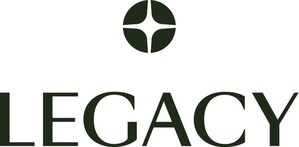Alarming New Data Underscores That the Future of Tobacco Control Lies With Youth Prevention, Especially for the Nation's Youngest Smokers
Statement by Legacy® on Youth Tobacco Consumption Rates
WASHINGTON, Dec. 14, 2010 /PRNewswire-USNewswire/ -- New data announced today in the University of Michigan's Monitoring the Future study shows that the decline in youth smoking rates has remained at a standstill for another year and appears to reflect a small uptick by students in the nation's 8th and 10th grades. As states have shifted their tobacco settlement dollars away from effective tobacco control and prevention programs to fill budget shortfalls, it is our youth who are paying the price. It is critical that we renew efforts to reduce tobacco consumption if we are to reverse these troubling new smoking rates in order to meet the U.S. Department of Health and Human Services' Healthy People 2020 objectives, which projects youth smoking rates at 16 percent by 2020.
Monitoring the Future, now in its 36th year, is the most respected source for current data on youth smoking. In light of the findings in today's report, we must redouble our efforts to jumpstart the historic declines in smoking the country witnessed in the late 1990s.
The survey found that the percentage of 8th graders who had smoked over past months had increased from 6.5 percent in 2009 to 7.1 percent in 2010, and for those in 10th grade, it increased from 13.1 percent to 13.6 percent. The perceived risk of smoking and the negative attitudes towards smokers seem to be reversing itself. According to Lloyd Johnson, lead investigator on Monitoring the Future, "Cigarette smoking is no longer declining and is increasing for the youngest surveyed."
Legacy®, the national public health foundation devoted to keeping young people from smoking and helping all smokers quit, is committed to finding new ways to reach and engage with the teen audience, with the ultimate goal of reducing youth smoking prevalence. This is especially important as the tobacco industry continues to successfully market its products and new smokers are addicted.
The foundation's evidence-based truth® youth smoking prevention campaign is a national effort that delivers facts and messages to teens about tobacco, but avoids giving directive statements telling youth not to smoke. Research has indicated that in the first four years of the campaign, 22 percent of the overall decline in youth smoking was directly attributable to truth. It is critical that funding continues to grow for efforts like truth campaign and state-specific smoking prevention campaigns. While the proven-effective campaign celebrated its 10th year in 2010, its national broadcast presence has been diminished by a lack of funding that is mirrored in the increase in smoking rates over the same time period when the U.S. youth smoking declines began to level off.
About eighty percent of all smokers have their first cigarette before age 18, and every day 1,100 youth become daily smokers. These daily smokers will continue down a path of tobacco-related diseases and will incur higher healthcare costs than nonsmoking Americans. Funding youth smoking-prevention efforts and encouraging parents to be roll models and quit, could prevent these ill effects.
Legacy is dedicated to building a world where young people reject tobacco and anyone can quit. Located in Washington, D.C., the national public health organization helps American live longer, healthier lives. Legacy develops programs that address the health effects of tobacco use, especially among vulnerable populations disproportionately affected by the toll of tobacco, through grants, technical assistance and training, partnerships, youth activism, and counter-marketing and grassroots marketing campaigns. The foundation's programs include truth®, a national youth smoking prevention campaign that has been cited as having contributed to significant declines in youth smoking; EX®, an innovative public health program designed to speak to smokers in their own language and change the way they approach quitting; and research initiatives exploring the causes, consequences and approaches to reducing tobacco use. The American Legacy Foundation was created as a result of the November 1998 Master Settlement Agreement (MSA) reached between attorneys general from 46 states, five U.S. territories and the tobacco industry. Visit http://www.legacyforhealth.org/.
SOURCE Legacy
WANT YOUR COMPANY'S NEWS FEATURED ON PRNEWSWIRE.COM?
Newsrooms &
Influencers
Digital Media
Outlets
Journalists
Opted In





Share this article